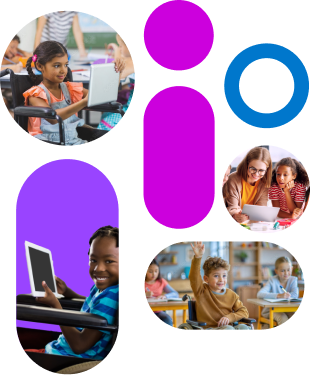Trip Report: ICEVI Africa

Last month several members of the Benetech Programs team attended the inaugural ICEVI Africa conference which was co-organized by our very own Martin Kieti in Kenya. Below is a summary of the trip and learnings my team brought back.
Recently, I travelled from the U.S. to Nairobi and met up with my colleagues Dr. Homiyar Mobedji and Zainab Chinikamwala from our India team and Martin Kieti who manages Bookshare engagement in Africa and who also works with The International Council for Education of People with Visual Impairment (ICEVI) Africa.
The five-day conference brought together people across Africa to discuss the future of education for people with visual impairments in Africa specifically.
As part of Benetech’s presence at the conference, our organization had a booth, small group presentations, as well as opportunities to share more information with the larger attendee audience about the work Benetech does through Bookshare and other programs and services.
The Takeaways
- Good news: Benetech and Bookshare are more widely recognized in Africa than we had anticipated. To scale impact, we need to inform more community organizations about our work in inclusive education, training, and other programs, beyond the Bookshare library.
- The work that Dr. Mobedji and his team have been doing in India, especially in the last two years, aligns with the need to address similar challenges in Africa.
“Inclusion begins in the home and the community, and it requires support from the workplace and schools. For this to be successful, it must be supported by mainstream technology that we all use. It is imperative that we break down stereotypes and assumptions about people with disabilities. To overcome barriers to participation, we must have an open heart and a creative mind.”
Dr. Lisa Wadors-Verne, Benetech
Universal Challenges for Students with Visual Impairments in the Global South
People with visual impairments in Africa encounter many of the same challenges as in India, where Braille is the primarily medium people rely on. Braille content is difficult to obtain, or the devices to read Braille are very expensive. Benetech is starting to collaborate around solutions for this challenge including a partnership with Burkina Faso to bring books to people with print disabilities as well as accelerate digital literacy with mainstream digital solutions. During the conference, the Kenyan government announced an additional collaboration with Benetech and the Kenyan Institute for the Blind to provide more content for those with visual impairments in Kenya. The Kenyan Government providing funding for accessible digital content for learners with print disabilities, in support of 5000 students is a big step forward. We believe these efforts can be scaled by replicating steps we have been taking in India that have resulted in encouraging results.
A Grass-roots Education Model Post-Pandemic
In India, Benetech has developed a program that adds new skill building and digital transformation in addition to inclusive and equitable access to content via Bookshare. A local team of experts, including people with disabilities, support the use of Bookshare by teaching digital literacy to people with visual impairments in person and online, enabling improved learning and, one of the most impactful outcomes — better job prospects. By using a digital first approach, we’re teaching students how to use computers and other technology. To increase digital literacy competency for students with disabilities, Bookshare India provides guidance and instruction. Students with disabilities benefit from this program because it increases independence and ultimately employability. Teachers in special education and inclusive schools will learn how to transition from braille to digital writing and reading with the help of digital devices, e-content, and Universal Design Language (UDL) practices. For students with visual impairments who use a keyboard and a phone, or a small tablet, doors and independence have opened and scribes are no longer required. When they finish school, they can have better employment opportunities, as workplaces do not offer scribes like schools do.
As part of our expansion into Kenya, we will provide training for content creators and other trainers. By shaping an ecosystem to create accessible content, we hope there will be no gap between what is available and what is accessible. All learners will be able to pursue careers that interest them while opening employment opportunities. We are excited to see the ongoing work that is coming out of the ICEVI conference and look forward to reporting out on our progress next year.
Join Our Impact Towards Education Equity for All
Benetech is committed to helping educators in every country design inclusive classrooms and to expanding digital literacy in countries across Africa and in India to help people with visual impairment become employable. In many countries where learning disabilities remain largely undiagnosed, students with visual impairments is the largest disability category. Therefore, it is not enough to provide content; publishers, teachers and students need training in how to use technology to make accessible content available. It is essential to ensure that students with disabilities receive an equitable and inclusive education, and that all content, assessments, and examinations are fully accessible.
You can join our end of year campaign to spread inclusive access to thousands more people in India and beyond. Together, we can create a world where every student feels valued, engaged, and empowered. Your gift represents the endless possibilities that lie ahead, waiting to be explored. https://benetech.org/give/
